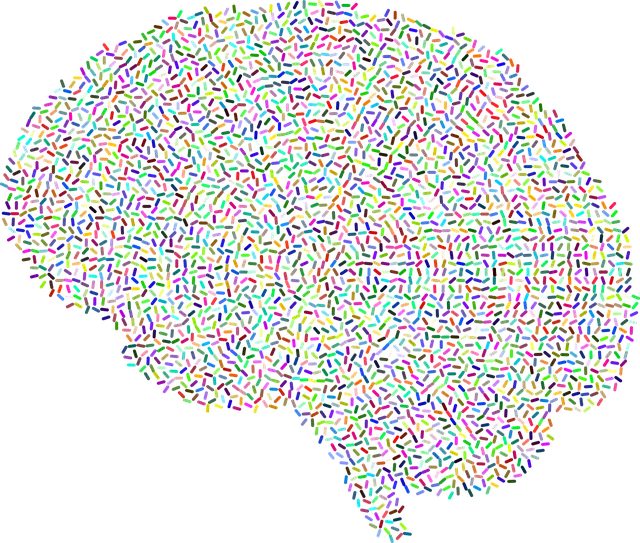The Kaiser Permanente Mental Health Access Center Aurora plays a vital role in enhancing mental wellness accessibility by advocating for comprehensive self-assessment tools. These tools equip individuals to monitor their emotional well-being, identify early signs of depression or anxiety, and seek timely intervention. Combining psychological assessment, conflict resolution, and positive thinking exercises, these assessments offer a holistic approach to supporting depression prevention and promoting overall emotional health. The center's initiatives, including user-friendly platforms with tailored mental wellness assessments, interactive features, and regular updates, empower individuals to discreetly track their progress and access resources for better lives. By breaking down barriers to care, this hub fosters a supportive community where everyone can prioritize and maintain their mental wellness.
Mental wellness self-assessment tools play a pivotal role in empowering individuals to take control of their mental health. In this article, we explore the development of such tools, focusing on the innovative work of the Kaiser Permanente Mental Health Access Center Aurora. We delve into the necessity of self-assessments in mental healthcare, discuss key components for comprehensive frameworks, and review the creation of user-friendly, accurate assessments. Additionally, we examine implementation strategies, their impact, and future directions to enhance mental wellness through self-assessment.
- Understanding the Need for Self-Assessment Tools in Mental Health Care
- The Role of Kaiser Permanente Mental Health Access Center Aurora
- Key Components of a Comprehensive Self-Assessment Framework
- Developing User-Friendly and Accurate Assessment Tools
- Implementation, Impact, and Future Directions for Self-Assessment in Mental Wellness
Understanding the Need for Self-Assessment Tools in Mental Health Care

In today’s fast-paced world, ensuring mental wellness is a priority for many individuals seeking to lead fulfilling lives. However, accessing suitable tools and resources for self-assessment can be challenging, especially in areas with limited mental health care options, like the Kaiser Permanente Mental Health Access Center in Aurora. This center recognizes the growing need for accessible, comprehensive self-assessment tools that cater to diverse mental health needs. By utilizing these tools, individuals can proactively monitor their emotional well-being and identify early signs of potential issues such as depression or anxiety, enabling timely intervention and effective management.
Self-assessment plays a crucial role in promoting mental health awareness and empowering individuals to take charge of their emotional state. Tools developed for this purpose should incorporate various psychological assessment techniques, including conflict resolution techniques and positive thinking exercises, to provide a holistic understanding of an individual’s mental wellness. Such tools can be instrumental in Depression Prevention efforts, as they enable early detection and support individuals in adopting healthier coping mechanisms.
The Role of Kaiser Permanente Mental Health Access Center Aurora

The Kaiser Permanente Mental Health Access Center Aurora plays a pivotal role in advancing mental wellness and accessibility within its community. This center serves as a comprehensive hub, offering a wide array of services designed to support individuals struggling with various mental health challenges. Through their expert guidance and resources, they empower people to take charge of their emotional well-being promotion techniques, providing effective tools for managing stress and anxiety relief.
Beyond direct service provision, the Mental Health Access Center Aurora actively contributes to public awareness campaigns development. They recognize the significance of educating the community about mental health issues, breaking down associated stigmas, and fostering a supportive environment. Their efforts aim to ensure that everyone has access to the resources they need to lead happier, healthier lives.
Key Components of a Comprehensive Self-Assessment Framework

A comprehensive self-assessment framework for mental wellness should incorporate several key components to ensure its effectiveness and relevance. One such framework developed by renowned organizations like Kaiser Permanente Mental Health Access Center Aurora emphasizes the importance of a multi-faceted approach. This includes assessments tailored to evaluate various aspects of mental health, such as emotional well-being, cognitive functioning, and social interactions. The integration of tools that gauge individuals’ coping mechanisms, stress management skills, and access to support networks is vital.
Additionally, fostering self-awareness through introspective exercises and promoting personal growth by offering resources for Inner Strength Development can significantly enhance the framework’s value. Just as Social Skills Training programs contribute to better communication and relationship building, Mental Wellness Coaching Programs Development can provide individuals with strategies to navigate life challenges more effectively. Such a holistic approach ensures that the self-assessment not only identifies areas of concern but also equips users with practical tools for personal growth and improved mental wellness.
Developing User-Friendly and Accurate Assessment Tools

Developing user-friendly and accurate mental wellness self-assessment tools is a critical step in enhancing access to care, as exemplified by initiatives like the Kaiser Permanente Mental Health Access Center in Aurora. These tools play a pivotal role in public awareness campaigns development by enabling individuals to proactively monitor their mental health status. By integrating simple yet effective Stress Reduction Methods, such assessments can detect early signs of distress, empowering users to seek timely support or implement Self-Care Routine Development for Better Mental Health directly from the comfort of their homes.
The design and functionality of these tools should prioritize ease of use, ensuring individuals from diverse backgrounds can navigate them without difficulty. Incorporating interactive features, clear language, and visually appealing designs enhances user engagement, leading to more accurate results. Moreover, regular updates based on latest research and feedback loops with mental health professionals ensure the tools remain current and effective in assessing a wide range of mental wellness states.
Implementation, Impact, and Future Directions for Self-Assessment in Mental Wellness

The implementation of self-assessment tools for mental wellness has been a game-changer, offering individuals an accessible and convenient way to evaluate their emotional state. Inspired by the innovative practices at the Kaiser Permanente Mental Health Access Center Aurora, these tools have the potential to reach a wide audience seeking mental wellness support. By integrating user-friendly platforms, individuals can discreetly assess their symptoms, track progress, and gain insights into their emotional healing processes. This approach democratizes mental health care, ensuring that those who might otherwise face barriers to accessing professional services can receive timely intervention.
Looking ahead, the future of self-assessment in mental wellness holds immense promise. Further research and development could lead to more sophisticated tools tailored to diverse populations, including those experiencing trauma. Personalized feedback mechanisms and integrated Trauma Support Services can enhance the effectiveness of these assessments. As we navigate the evolving landscape of digital health, these self-assessment tools will continue to play a pivotal role in promoting and maintaining mental wellness, ultimately fostering a more supportive and inclusive community for all.
The development of user-friendly self-assessment tools is a significant step forward in mental wellness care, especially with the support of resources like the Kaiser Permanente Mental Health Access Center Aurora. By incorporating comprehensive frameworks that consider diverse factors, these tools can empower individuals to actively manage their mental health. As technology advances, further refinement and integration of such assessments into routine healthcare practices are promising, offering improved access to care and positive impacts on overall well-being, as evidenced by the success of Kaiser Permanente’s initiatives.






